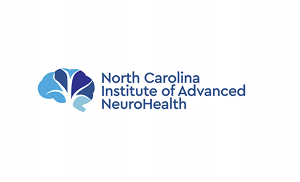
North Carolina Institute of Advanced NeuroHealth Begins Offering Intravenous Ketamine Therapy
(Apex, North Carolina) – Depression is a lot more prevalent than a lot of people think. According to the World Health Organization, approximately 5 percent of all adults or 280 million people worldwide live with the mental health disorder associated with mood swings ranging from depressive lows to manic highs.
Depression is the leading cause of disability worldwide, and is a major contributor to the overall global burden of disease; but as Dr. Vinay Saranga of the North Carolina Institute of Advanced NeuroHealth points out, there are effective treatments available for mild, moderate and severe forms of the disorder.
“Medications like Zoloft and Prozac and psychotherapy are helpful for many patients, but difficult cases of depression, anxiety and other common mental health disorders need a different approach that goes beyond standard protocol,” he said. Recently, Dr. Saranga had a patient who was suffering from depression so severe that none of the medications he prescribed were making any difference. The patient wanted to try something different.
On his own, he came across a Ketamine clinic in the area and he tried it. After his second or third treatment he observed a significant improvement in his condition.
“After undergoing the treatment, my patient found himself thinking more clearly, and that’s not all. His mood was significantly better as well. Plus, he was no longer having suicidal tendencies. “I thought maybe we’re onto something here—a treatment than can help a lot of people,” said Dr.Saranga.
So, he and his wife, Dr. Reshmi Saranga, who is also a psychiatrist, started doing some research. They discovered that Ketamine treatment for depression is gaining in popularity.

“I too have a patient who had tried it and noticed a big improvement in his cognition and some relief from his anxiety symptoms. He also experienced some relief from his PTSD trauma symptoms after undergoing the treatment,” said Dr. Reshmi Saranga.
Ketamine is a dissociative anesthetic that has been around for decades. It has traditionally been used to result in temporary loss of sensation or awareness during medical procedures; but studies show that in lower doses it can also be extremely effective in the treatment of mental illness.
Even though it isn’t broadly accepted by the psychiatric community yet, the Sarangas have both decided to begin offering it as a therapy for depression through the North Carolina Institute of Advanced Neurohealth. Dr. Reshmi Saranga works primarily with adult and geriatric patients. Her husband, Dr. Vinay Saranga, works with children and adolescents.
Ketamine treatment is available in three different forms: intravenous, intranasal and sublingually, or under the tongue. “We will exclusively be offering the intravenous treatment,” explained Dr. Vinay Saranga.
The standard treatment calls for six doses: two per week for three weeks. “Patients typically start seeing results after the third or fourth treatment. Then after the initial course, we recommend a booster treatment in the future as well,” he said.
Ketamine isn’t the only alternative treatment that is offered for patients through the North Carolina Institute of Advanced Neurohealth. The practice also offers Transcranial Magnetic Stimulation (TMS).
TMS is a technique that uses brief, powerful magnetic pulses to stimulate specific neurons in the brain. TMS has become a popular treatment for major depressive disorder (MDD) and obsessive- compulsive disorder (OCD), but practitioners also find it helpful for several other mental health conditions. These include post-traumatic stress disorder (PTSD), anxiety, bipolar depression, chronic pain, insomnia and more.
Ketamine and TMS therapies are intended for patients who are suffering from severe depression. Those dealing with mild depression and other mental illnesses can also seek treatment from the husband-and-wife psychiatrists through Saranga Comprehensive Psychiatry.
The practice specializes in treating anxiety in children and teens, bipolar disorder in adolescents, and the following conditions in adults: ADHD, ADD, Bipolar Disorder, Depression, Autism Spectrum Disorders, Postpartum Depression for Moms, Schizoaffective Disorder, Opiate Addiction and Seasonal Affective Disorder.
For more information about the Ketamine and TMS Therapies, go to Ncinstneurohealth.com. for information about the other psychiatric services provided by Dr. Vinay Saranga and Dr. Reshmi Saranga, go to Sarangapsychiatry.com.
Contact:
Rachel M. Anderson, Publicist
952-240-2513
